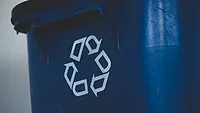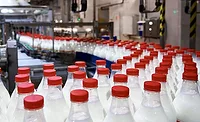Milk Treated with UV Radiation is Safe: EFSA Panel

The European Food Safety Authority (EFSA) Panel on Dietetic Products, Nutrition and Allergies has delivered its opinion on ultra-violet (UV)-treated milk, saying that the dairy product is safe for the general public, excluding infants under 1 year of age.
The Panel's opinion is based on data submitted in the original application to obtain the agency’s official ruling, assessment findings by authorities in Ireland, as well as comments and objections raised by Member States.
The Panel looked specifically at cow’s milk--including whole, semi-skimmed and skimmed--meant to be consumed by the general population except for infants up to 1 year of age. The milk was treated with UV radiation after the process of pasteurization had taken place. The purpose of UV radiation is to extend the shelf life of the milk.
?With UV treatment, milk experienced an increase in the level of vitamin D3 concentrations. By comparison, vitamin D3 levels in the control milk were below the limit of detection. Other than the spike in vitamin D3 concentrations, scientists saw no other significant differences in the nutrient content of milk treated with UV radiation compared to milk that had not been treated with UV radiation.
?Based on these findings, the Panel “considers that the provided compositional data, the specifications and the data from batch testing do not give rise to safety concerns.” The Panel does believe that UV treatment of milk--given the specified parameters under which they tested--is acceptable.
Sign up for Food Safety Magazine’s bi-weekly emails!
Looking for quick answers on food safety topics?
Try Ask FSM, our new smart AI search tool.
Ask FSM →








